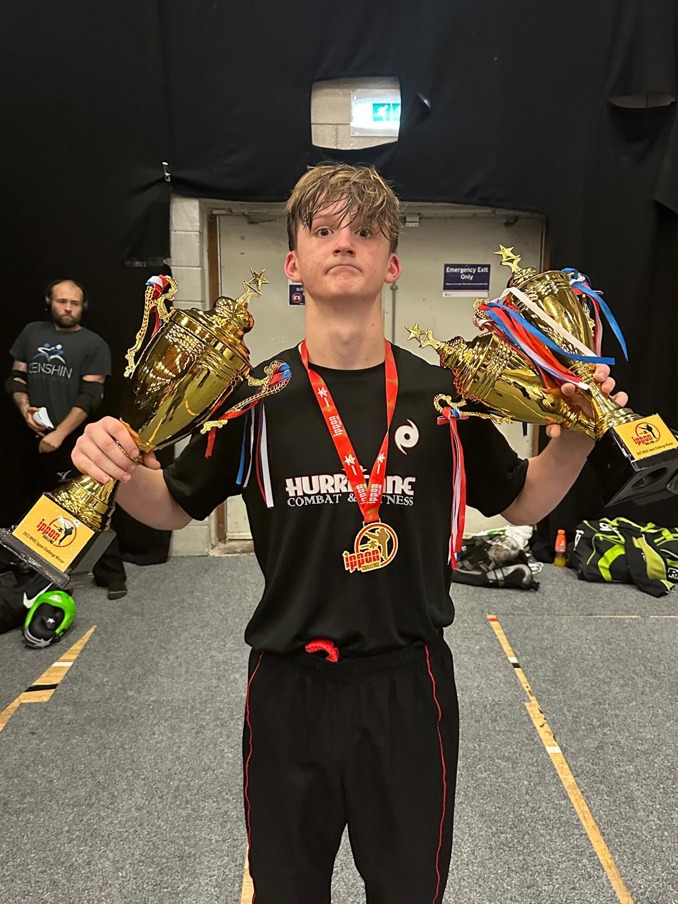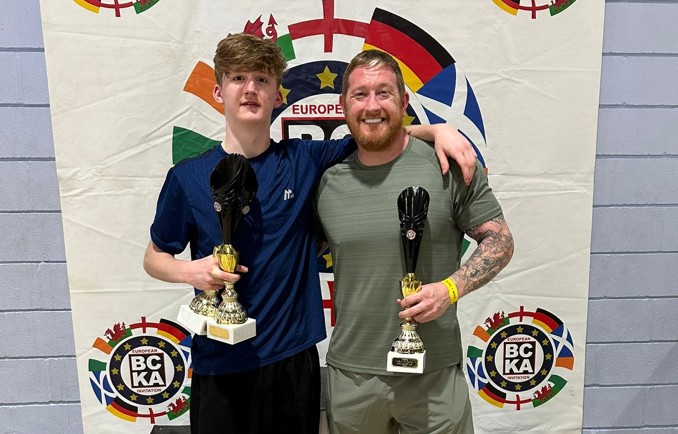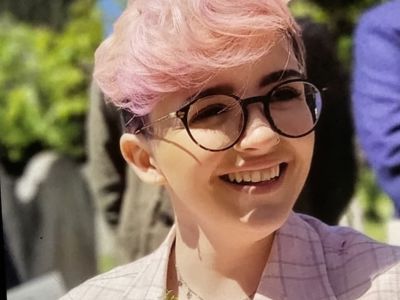Inquest into death of Alex Eastwood concludes
An inquest into the death of 15-year-old kickboxing world champion Alex Eastwood following an unsanctioned exhibition kickboxing match laid bare a “chaotic and disjointed” approach by match organisers, a coroner said.
Posted on 12 June 2025
Recording death by misadventure, HM Area Coroner Michael Pemberton said the level of confidence in organisational safeguards expected to exist within the sport was “sadly lacking”.
Alex died on 2 July 2024, three days after he became unwell during an exhibition kickboxing fight at a gym in Platt Bridge, Wigan.
Alex had fought three individual rounds of the unsanctioned bout, staged outside of any governing body rules, when he became disorientated and was helped on to the ring floor. He was taken by ambulance to Royal Albert Edward Infirmary in Wigan and was transferred to the Royal Manchester Children’s Hospital (RMCH) after he was found to have a catastrophic bleed on the brain. He underwent surgery but died in hospital three days later.
A four-day inquest at Bolton Coroner’s Court, which concluded on Thursday 12 June 2025, examined the circumstances of Alex’s final bout, his training history, the safety measures in place at the time, and the broader regulatory environment for children participating in combat sports.
Alex’s family, who live in Fazakerley, Liverpool, raised concerns about the safety measures and precautions in place around the fight on 29 June 2024, as well as regulation around child combat sports.
The inquest heard five-time world champion Alex had fought a 37-year-old man in a competition just one week before the fatal bout. Ian Hollett, chief instructor at Hurricane Combat and Fitness where Alex trained, said Alex had not been beaten for two years and was progressing rapidly. The coroner expressed “shock” that a 15-year-old child had been matched against an adult in a contact sport, noting that such a pairing would be “very serious” in any other context.
Organisers and other coaches involved in the bout on 29 June described Alex’s fight to the inquest as a “light contact” exhibition match held as part of a charity fundraiser. It was not sanctioned by any national governing body and fell outside the jurisdiction of Kickboxing GB (KBGB) - the only organisation for the sport in the UK officially recognised by both Sport England and the World Association of Kickboxing Organisations (WAKO), which is recognised by the International Olympic Committee (IOC). Alex’s opponent on the night was two years older with experience and training in full contact fighting.
Gordon Mitchell, Head of Welfare and Governance at KBGB, told the inquest the organisation would never sanction a light contact bout in a ring. He explained that such matches are only permitted on mats, where “mitigating factors” such as fighters stepping off the mat allow referees to step in, in the event of a mismatch or escalating risk.
Although the referee and judges described a pre-fight meeting to establish the rules and level of contact, Alex’s coach Ian Hollett was not at that meeting. The inquest also heard that the definition and enforcement of light contact rules in a ring were unclear and inconsistently applied. Messages read out in court between one of Alex’s coaches and the event organiser who owned the gym in Wigan also revealed they had agreed to "let it go a bit". Mr Pemberton said there was a “disparity” between how the match was billed and how it unfolded.
The inquest heard that at the end of the third round, Alex had appeared unsteady and held on to the ropes as he returned to his corner. His father, Ste, who had been watching ringside, described running into the ring after noticing something was wrong and lowered Alex to the floor.
Ste labelled the scene as “chaotic”, as first responders from private company, Lancashire Ambulance Service (LAS) who were present attended to Alex. Ste said Alex was breathing like a “big bulldog on a hot day struggling” as he lay in the ring.

Alex’s family had raised serious concerns about the time it took for oxygen to be administered once first responders entered the ring. The coroner said he was satisfied there was a “short delay” between the first responders first entering the ring and Alex receiving oxygen.
Paramedics arrived and took Alex first to the Royal Albert Edward Infirmary in Wigan where he was intubated, as they were not qualified to do so. Alex was assessed and transferred to the Royal Manchester Children’s Hospital, where surgeons were waiting to operate. It was discovered Alex had suffered catastrophic brain damage. His family were told nothing could be done, and Alex died two days later.
Mr Nick Todd, an expert neurosurgeon instructed by Alex’s family, said that, in his opinion, had Alex received critical care at the venue, and his airway been cleared, he could have been taken straight to hospital in Manchester. He added had Alex been operated on hours earlier, he would have had a much better chance of survival. Mr Roberto Ramirez from the Royal Manchester Children’s Hospital said that this was a situation where every minute counted.
The inquest heard that no independent ringside doctor or paramedics were present on 29 June. Les Hewitt, Operations and Training Manager for LAS told the inquest that for other events organised by the owner of the gym in Wigan, it was typical to have an ambulance, medical staff, and doctors on site. However, because the event was promoted as a light contact, exhibition-style bout, it was deemed lower risk and did not receive the same level of medical provision. Instead, LAS allocated two first responders with a FREC 3 (First Response Emergency Care – Level 3) qualification, which is a first aid qualification.
Mr Hewitt added that for light contact exhibition events, guidance was provided by the promoter and that factors such as, the charitable nature of an event could influence decisions around medical coverage due to costs. He added that he would normally expect opponents to be matched by age and weight and said Alex having fought a 37-year-old man in the previous week was a “massive safeguarding issue”.
Throughout the inquest HM Area Coroner Michael Pemberton explored the broader framework governing children’s participation in combat sports. The inquest heard that while KBGB prohibits light contact bouts from taking place in boxing rings, such bouts frequently occur across the country under different promotional banners and outside the remit of recognised governing bodies. As a result, standards around safety, medical oversight, and safeguarding vary widely and, in many cases, are absent altogether.
The inquest also heard that Hurricane Combat and Fitness, the gym where Alex trained, only introduced a formal safeguarding policy in 2024 - despite having operated since 2001 and having currently around 400 child members.
During the inquest HM Area Coroner Michael Pemberton referenced the fact he previously took the highly unusual step of issuing a Regulation 28 Prevention of Future Deaths report ahead of the full inquest. In his report, Mr Pemberton said “if a match is unofficial or unsanctioned, there is no guideline of what minimum standard must be met to provide safeguarding for a child participant.”
He said this includes:
- No minimum standard of what medical support may be required.
- Maximum rounds or periods of rest.
- Welfare checks on participants being undertaken.
- No risk assessment and critical incident plan.
A response from Lisa Nandy, Secretary of State for Culture, Media and Sport, to the report said she has tasked her department with “exploring ways to urgently improve the safety and welfare of children in martial arts and ensure it is always a priority”.
She added:
“No family should have to endure the pain and loss Alexander's family have experienced and I am determined that from this tragedy, there must emerge a better system.”
Alex’s family are represented by Thomas Jervis and Jill Paterson, personal injury solicitors at law firm Leigh Day. Counsel is Adam Korn from 7 Bedford Row Chambers.
Ste and Nikita Eastwood said:
“Alex was our heart and soul - a loving son, an adoring brother, a loyal friend. At just 15, he was already the best of us. He filled our home with laughter, love and warmth.
“We should not be here. Alex should be here. No child should go into a gym to do something they love and not come home. What happened to him was not just a tragic accident - the inquest has made clear to us that it was a failure of safeguarding, of responsibility, and of regulation.
“Alex died after a fight that we now see should never have happened. There was no national governing body involvement, and no clear or enforced safety standards. His death must be a line in the sand so that these failures change.
“We welcome the coroner’s determination and thank him for recognising the shocking circumstances surrounding Alex’s death. But this cannot end here. We urge those in power to act swiftly and decisively to prevent the risk of this happening to another child. There must be clear, enforceable, national protections for children in combat sports.
“Our lives have been changed forever. Alex's future was taken - and with it, part of ours too. We miss him every second. Now, all we have left are memories, but we also have the responsibility to make sure his death was not in vain and for his sake we will make sure we do that.”

Jake Eastwood, Alex’s brother, said:
“Our lives were shattered the day we lost Alex. He was a son, a brother, and a light in our family, taken from us during an unsanctioned kickboxing match where serious mistakes were made. We believe there was no proper oversight, and no appropriate safety protocols in place. If there had been, we believe Alex would still be here.
“As his older brother, alongside his younger brother Frankie, I feel his absence every single day. Our parents, Stephen and Nikita, are broken by grief. The laughter in our home has turned into silence, our days into struggles. We wake up each morning wishing it had all been prevented.
“We are calling for change - real, lasting change in combat sports regulations to ensure no other family has to deal with what we are going through. Also there must be accountability. We demand justice for Alex, not just for our family’s healing, but to protect others from the same fate.
“Alex deserved better. Every fighter does. His life cannot be lost in vain.
“We want to personally thank close family and friends, all of the Leigh Day team, our barrister, Adam Korn, Debbie Bennetts funeral home, P&A memorials, Archbishop Beck High School and Blessed Sacrament Primary School. Without the love, support and guidance from these people we would be in a much darker place. Thank you.”
Leigh Day partner Jill Paterson said:
“This inquest has laid bare the deeply concerning lack of oversight and regulation in children’s combat sports. Despite Alex’s extraordinary talent and promise, he was let down by those responsible for his safety - from the adults who organised the fight, to the system that allows such events to take place in a regulatory vacuum.
“The current framework looks like the wild wild west - with no consistent rules, no oversight, and no accountability when it comes to unsanctioned kickboxing bouts involving children. It is unthinkable that this has been allowed to continue for so long
“The coroner’s Prevention of Future Deaths report made it clear - there are no minimum national standards that must be met to protect children like Alex when events are unsanctioned. This is a serious and dangerous gap in safeguarding that must be closed immediately.
“We welcome the Secretary of State’s response. But we now need urgent, concrete action from government and sporting bodies. A tragedy like this must never be allowed to happen again.
“It has been a privilege to represent Alex’s family at his inquest, and we pay tribute to their fortitude, bravery and dignity in the face of their grief and their determination to achieve lasting change in Alex’s name.”

Jill Paterson
Jill is an experienced personal injury lawyer and is widely regarded as one of the UK’s best claimant product liability lawyers.

Inquest finds failings by Sussex mental health services contributed to the death of 25-year-old TikTok influencer Imogen Nunn
An inquest has found that failings by mental health services at Sussex Partnership NHS Foundation Trust (SPFT) contributed to the death of 25-year-old TikTok influencer Imogen Nunn.


